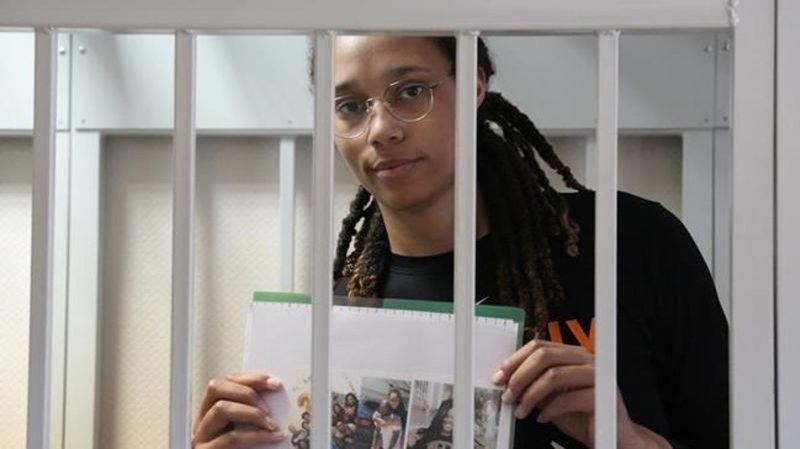
Griner testifies at Russia drug trial about interrogation
KHIMKI, Russia (AP) — The drug trial of American basketball star Brittney Griner resumed Wednesday in a Russian court with Griner testifying that a language interpreter provided during her questioning translated only a fraction of what was said.
Griner was arrested at a Moscow airport in February. She acknowledged in court earlier this month that she had vape canisters containing cannabis oil when she arrived in Russia but contends she had no criminal intent and the canisters ended up in her luggage inadvertently.
During her testimony, the Phoenix Mercury standout described making a grueling 13-hour flight to Moscow from Arizona while recovering from COVID-19. She recalled how her luggage was checked upon arrival and getting pulled aside after the canisters were found in her luggage.
Along with the interpreter provided an incomplete translation, Griner said she was offered neither an explanation of her rights nor access to lawyers and was instructed to sign documents without receiving an explanation of what they implied.
